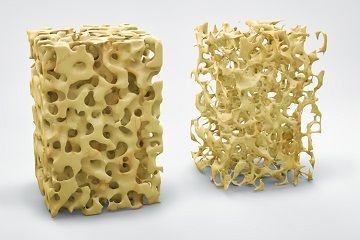The human body is made up of large quantities of gaseous elements like Oxygen, Carbon, Hydrogen, Nitrogen; smaller quantities of minerals like Calcium, Phosphorus, Potassium, Sulphur, Sodium, Chlorine, Magnesium; and then some other trace elements.
Calcium is the most abundant mineral found in the human body. We think that our bones and teeth are mostly made of calcium, but they are not: Calcium is only a small part of their composition. In fact, the total amount of calcium that our body holds, is only 1.5 – 2 % of its entire weight.
Then why is Calcium so important?
Calcium is required for each and every muscle contraction, even for the beating of your heart. Blood clotting, normal functioning of many enzymes (and these enzymes control each and every function of the body), and the rhythm of your heart is dependent on calcium. And, obviously, it is required for the composition of your bones and teeth. Bones form your skeletal system, give structure to the body, and also protect your vital organs.
As Calcium is required for the most important functions of the body, obviously the blood always has to carry enough of it at all times, and make it available for the body to use. Unless something terribly wrong is going on in the body, your blood calcium levels will always remain adequate. If enough is not made available from food, it is withdrawn from the calcium bank in your bones.
Your bones act as the calcium stores for the body. There is a continuous building and breaking down activity going on in the bones throughout life. The “building up” activity is dominant till the early thirties, and the “breaking down” activity is more after that. If you do not deposit enough calcium in this bone bank in your childhood and early adulthood, you are likely to use the calcium stores faster as you age. Bone structure and strength is at its “peak” in your early thirties. This “Peak Bone Mass” is dependent on genetics too. Women unfortunately, tend to have less peak bone mass than men, and they also lose more bone mass after menopause. The amount of calcium that your bones can absorb and store reduces as you age, and it is almost impossible to build up the stores in later life.
People who smoke, and those that drink excessive amounts of alcohol and caffeine are likely to have lower calcium deposits and lose them faster. Regular consumption of carbonated drinks (soft drinks); high intake of saturated animal fats, and sweets or simple sugars also can cause excessive bone loss.
While opinion on whether one should have milk, and whether it is harmful to the human body is divided, it is still true that milk and milk products are the easiest sources of calcium available to us. Calcium can also be obtained from green vegetables, nuts, whole grains, and fish bones.
After building up calcium stores, it is also important to maintain them through life. This can be done by encouraging the bones to absorb more every day, and you can do this by including a moderate amount of weight (strength) training throughout life. The force applied on the bones by a strong muscle contraction will stimulate the bones to absorb calcium.
Calcium absorption by the bone is also affected by your protein intake. Too less or too much protein, are both likely to cause bone loss. Plant foods (vegetables, grains, and fruits) fulfil most of our vitamin and mineral requirements, and vitamins and minerals play a vital role in Hormonal balance and Calcium absorption. So varied intake of plant foods is indirectly vital for maintaining strong bones.
A discussion on bone health cannot be complete without the mention of the “good” fats Omega 3 and 6. These too are important to maintain strong bones as you age. Several seeds and nuts can provide these in your daily diet.
Eating extremely low-calorie diets can actually stimulate bone loss. Studies show that eating balanced meals and maintaining an even and adequate calorie intake throughout life helps to maintain available bone mass. Going through repeated cycles of weight gain and loss through life might affect bone health drastically.
I think the most important nutritional supplement you can take to ensure bone health is an adequate amount of water. Just a slight dehydration on a daily basis can keep your body in a continuously “stressed” mode, triggering biochemical reactions that will promote bone loss. Remember, water is also important for digestion and absorption of all nutrients, so even if you “eat healthy”, the body might not get the benefit of nutrients unless you “drink healthy”.
So you see, just like everything in life, balance and moderation is also the key to bone health.
#PrakrutiSSPC #WorldosteoporosisDay #Benefitsofcalcium #rightnutrition #healthybones #healthyus!









